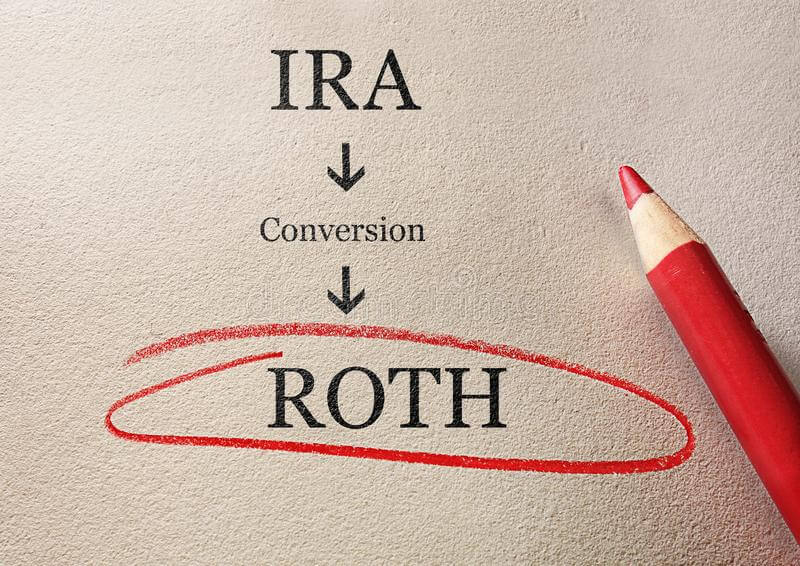We often receive questions about Roth IRA conversions, the main question being “Should I convert my traditional IRA to a Roth IRA”? The answer to that question is that anyone can convert their eligible IRA assets to a Roth IRA regardless of income or marital status. Investments in a Roth IRA have the potential to grow tax-free, which may help you save more over time.
However, there are four important factors that you should consider before you decide if a Roth IRA conversion is right for you: taxes, time, costs, and required minimum distributions (RMDs).
- Taxes. With a Roth conversion, you pay federal income taxes now on the conversion amount, but none on any future earnings as long as when withdrawals are taken, the 5-year aging period has been met and you are age 59½ or over, disabled, or deceased. (In the event of the account holder’s death, a spouse or beneficiary could make withdrawals.)
If you think your tax rate will be higher in retirement than it is today, you may want to consider a Roth IRA conversion. If your taxable income is lower this year than in a typical year, or if you have retirement accounts that have lost value, you may want to consider a Roth IRA conversion because you may pay less in taxes. If you plan to leave your assets to your beneficiaries, consider conversion because they may not have to pay federal taxes on that money. This year may provide an opportunity for you to convert your IRA to a Roth IRA. Consider this. The CARES Act of 2020 allows any taxpayer with an RMD due in 2020 from a defined-contribution retirement plan (including a 401(k) or 403(b) plan), or an IRA, to skip those RMDs this year. This includes anyone who turned age 70 1/2 in 2019 and would have had to take the first RMD by April 1, 2020. If your RMD would have been significant in 2020 but you don’t need the RMD this year, your taxable income will be lower. By converting to a Roth IRA this year, you will be paying taxes on the money you convert to a Roth account instead of paying taxes you would have owed on your RMD.
- Time.The relative benefits of conversion will generally increase the longer your money remains in the Roth IRA. Generally, conversion may not make sense if your time horizon is less than 5 years, because if you have not met the 5-year aging requirement, any withdrawals from a Roth IRA account are subject to a 10% penalty.
- Cost:Because you will be required to pay federal income taxes on the conversion now, you need to consider that cost and whether or not you can afford that in the current year.
- RMDs:There are no required minimum distributions (RMDs) from a Roth IRA during the lifetime of the original owner. If you think your tax rate will be the same or higher than your current rate when you withdraw your money, it may make sense to consider converting to a Roth IRA now.
We hope the above information is useful in answering any questions you may have had about whether a Roth IRA conversion is right for you. If you have been thinking about converting some or all of your retirement assets to a Roth IRA and want more information, please call us with any questions and we will be happy to discuss them with you.





